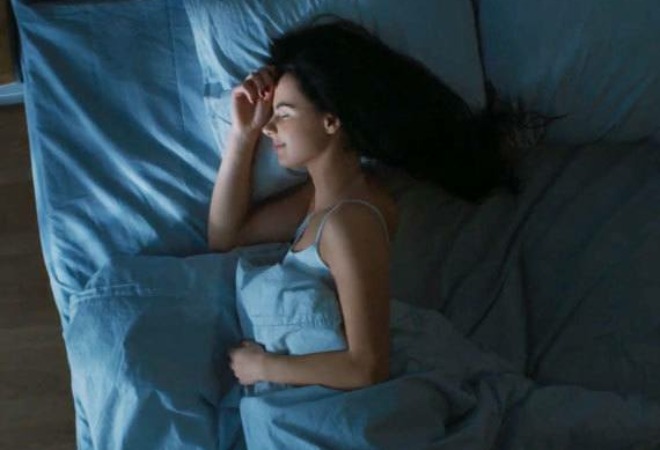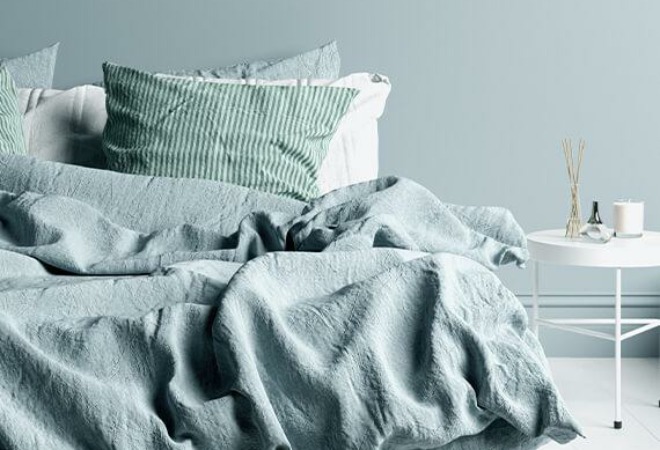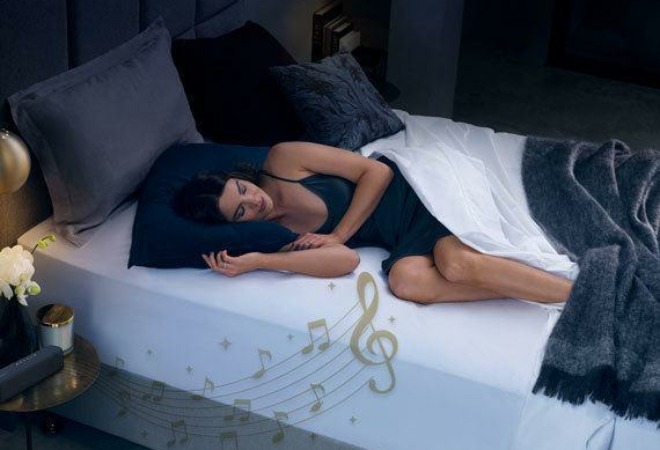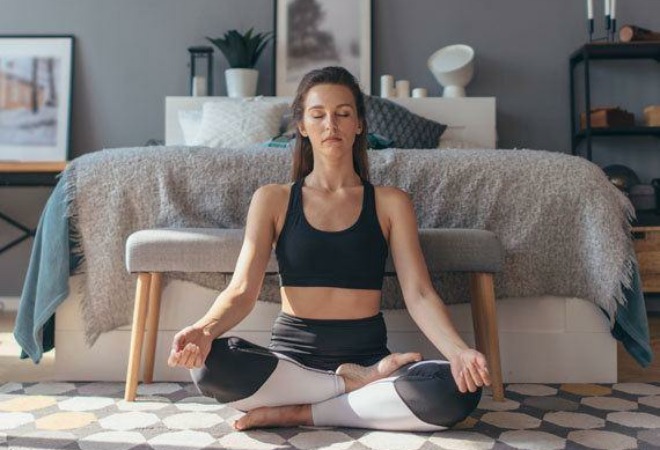Did you know that different coloured lights have a unique effect on your brain function and mood? Blue light wavelengths keep us alert and active during the day – think blue skies and energising oceans. However, exposure to blue light before bed can hinder our relaxation and quality sleep.
Electronic devices such as our mobile phones and laptops emit a blue light, which can disrupt our natural sleeping patterns. Before the arrival of artificial lighting, our sleep routines were guided by the sun. Now, many of us spend our evenings illuminated by artificial light. With 80% of New Zealanders using their phones an hour or less before going to bed, our sleep is being harmed by blue light more than ever.
So, what exactly is blue light and how does it affect our sleep?
WHAT IS BLUE LIGHT?
Blue light is a certain element of the visible light spectrum that has a unique effect on our hormone production and sleep cycle. Prolonged exposure to blue light also elevates our heart rate and body temperature, stimulating our senses. Because of this, the blue light impact on sleep can be harmful.
Blue wavelengths have a profound effect on our body clocks, with both natural and artificial blue light impacting our mental sharpness. During the day, blue light elevates our attention and performance. However, exposure to excessive blue light from our technology before bed can impede our ability to wind down and relax.
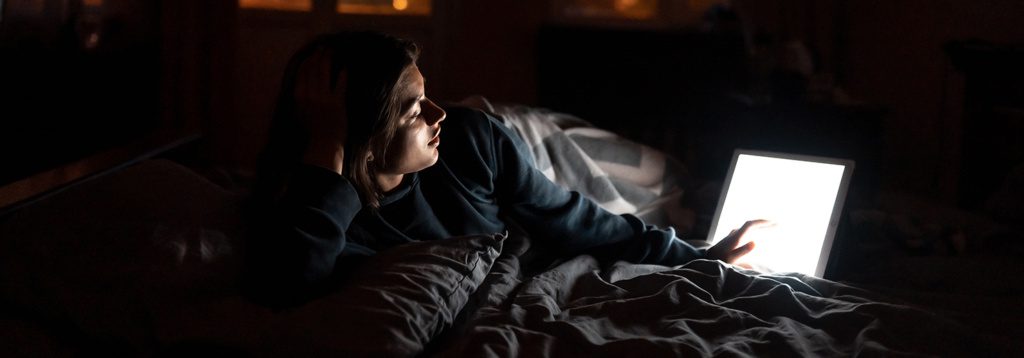
EFFECTS OF BLUE LIGHT ON SLEEP
BLUE LIGHT EFFECT ON MELATONIN
Although just before bed time seems like the perfect chance to catch up on social media or binge new episodes of your favourite show, engaging with blue light in the evenings can trick our senses into believing that it’s daytime – a time to be alert and energised. This can disturb our natural circadian rhythm (our body’s natural biological clock) and trick us out of being tired enough for deep rest. Even dim exposure to blue light at night is a key reason why most people aren’t receiving enough quality sleep.
Unfortunately, severely misaligned circadian rhythms can have various health impacts. The consequences of blue light after dark can lead to metabolic disorders, depression, diabetes and cardiovascular problems. If you feel like your body clock is severely out of line or are suffering from insomnia, it is recommended that you discuss this with your GP to ensure you get the assistance you need.
EFFECTS ON CIRCADIAN RHYTHM
Our circadian rhythm can be set off balance by blue light exposure caused by an overexposure to our phones and technology before we sleep. While we all have slightly different circadian rhythms, daylight is what keeps our sleep patterns aligned with the environment. As blue light mimics daylight, it sends harmful signals to our finely tuned sleep system.
Blue light has the greatest impact on our circadian rhythm, so should be monitored to prevent sleep disruption. The effect of blue light on our circadian rhythm can be detrimental to achieving quality rest.
WHICH DEVICES GIVE OFF BLUE LIGHT?
While the light that your electronic devices emit may appear to be white, they technically contain blue wavelengths. Common sources of artificial blue light include:
- Smartphones
- Tablets
- Laptops
- Computer monitors
- Televisions
- Gaming systems
- Fluorescent and LED lighting
- E-readers
TIPS TO LIMIT BLUE LIGHT BEFORE BED
Luckily, there are simple methods for avoiding blue light before bed. By sticking to a healthier night-time routine, you can reduce the harmful blue light impact on sleep.
1.
The simplest and most effective way to avoid blue light before bed is to stay away from your smartphone, laptop, TV or blue-light emitting devices starting 2-3 hours before bed
2.
If device use is essential, swap the brightness setting to a low level or turn on an automatic dimming function
3.
Switch your devices onto dark mode, which changes colour settings from white to black and is slightly less damaging
4.
Swap your light bulbs from LED to one with less blue-light
5.
Use a dim red light bulb for a nightlight or bedroom lamp, as red least affects our circadian rhythm
6.
Try blue-light blocking glasses, which best function with amber or brown tinted lenses
7.
Make the effort to engage with bright natural light during the day and significantly reduce exposure at night to tap into your natural sleep rhythm
LIMIT BLUE LIGHT EXPOSURE FOR BETTER SLEEP
Our best advice to reduce the negative effects of blue light is to avoid blue light before bed. By doing so, you can move towards enjoying deeper, more rejuvenating rest.
Try our Sealy Bed Selector to find the best bed for your sleep needs.

